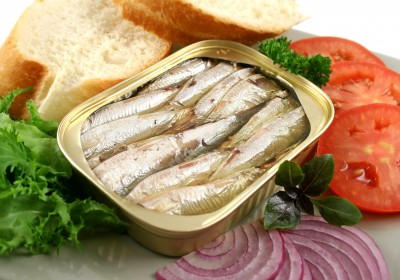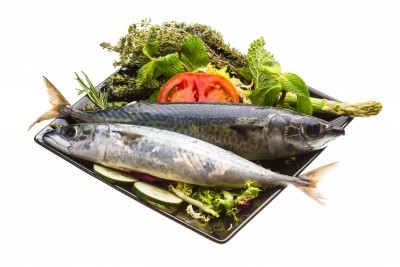Did you know that, ounce for ounce, sardines provide more protein than a steak and, among fish, have the highest levels of omega 3 fatty acids? Well, I know that my early dietary standards did not consider sardines a health food. As a matter of fact, I viewed sardines as an acquired taste and a take or leave it kind of food. But now that I have learned to appreciate the finer foods of life, I highly recommend that sardines become a regular part of your diet. Sardines are nutritionally dense, containing both micro and macro nutrients. Omega 3 fatty acids are known to prevent and/or control dementia and cardiovascular disease and improve depression. Sardines also contain good amounts of vitamin D and calcium, each of which are necessary to build and strengthen our bones.
Nutritional Profile
About 3 whole sardines (5 ounces) will provide you with a full day’s requirement of vitamin B12 (15 mg) and selenium (71 mcg) plus the following vitamins and minerals:
- Protein 33 g

- Potassium 536 mg
- Magnesium 53 mg
- Iron 3.9 mg
- Zinc 1.8 mg
- Vitamin E 2.7 mg
- EPA Fatty Acid 1.147 g
- DHA Fatty Acid 1.550 g
Purchasing Sardines
Be mindful that all sardines are not created, or should I say processed, equally. Most grocery stores sell commercially processed/canned sardines containing food additives, preservatives, excessive sodium, and often, hidden forms of MSG. In order to get sardines that have not been denatured by the canning process, I recommend that you purchase them from a health food store. Sardines sold in health food stores will have a notation on the package or can stating: Processed for the health food industry. Remember that food, fresh or canned, should be minimally processed so that its nutritional profile remains intact.
Sardines are easy to prepare and to eat. Fresh and even canned sardines can be slightly broiled with lemon juice and served on crackers or bread. I enjoy my sardines with mustard mixed with the juice of ½ lemon and finely chopped onions on Table Water Crackers with garlic and herbs.
Sources:
100 Best Health foods. New York: Parragon Books, 2009.
Chappell, James, The Miracle Elements: Fossilized Stony Coral Minerals . Heart to Hear Publishing, 2001.



